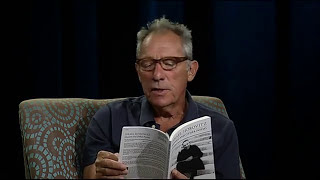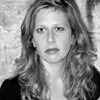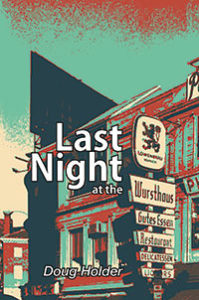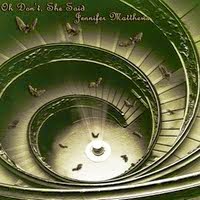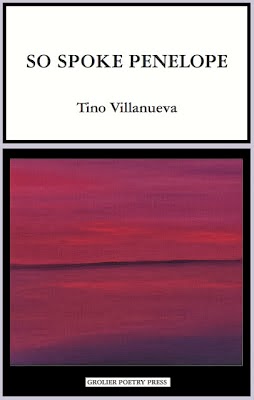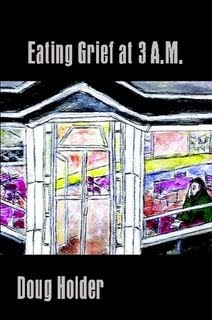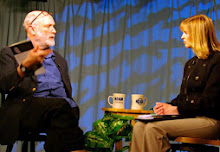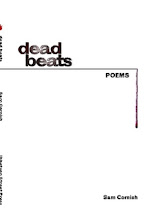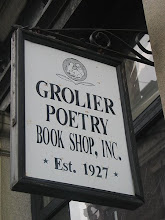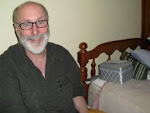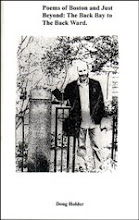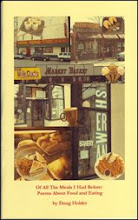 (Kim Triedman)
(Kim Triedman) (Lawrence Kessenich)
(Lawrence Kessenich)Poets Kim Triedman and Lawrence Kessenich Take The Helm at the Ibbetson Street Press.
( Somerville, Mass.)
Ibbetson Street, a well-respected literary journal , founded in Somerville, Mass. in 1998, announced a change in the editing staff. The magazine, affiliated with Endicott College in Beverly, Mass., released this statement from publisher Doug Holder:
Dorian Brooks our longtime Managing Editor at “Ibbetson Street” is retiring. She did a wonderful job for us, and brought Ibbetson Street to a new level. Dorian will be very hard to replace but I asked two excellent poets and writers to grab the helm that Dorian so adeptly occupied. Kim Triedman will be the Managing Editor for the November issue (2011) and Lawrence Kessenich for June (2012). Each editor will be bringing a small number of poets on board for each issue, as well as editing the magazine. Harris Gardner and Mary Rice will continue to be our Poetry Editors. The new Issue of Ibbetson Street that is to be released this June will be the last one edited by Dorian. Mary Rice is the Poetry Editor for our upcoming issue ( #29) and she did a great job, including securing a number of poems from poet Celia Gilbert.
Below are the bios of the two new managing editors.
Kim Triedman began writing poetry after working in fiction for several years. In the past two years, she's been named winner of both the 2008 Main Street Rag Chapbook Competition and the 2010 Ibbetson Street Poetry Award; finalist for the 2007 Philbrick Poetry Award and the 2008 James Jones First Novel Fellowship; and semi-finalist for the 2008 Black River Chapbook Competition and the 2008 Parthenon Prize for Fiction. Her poems have been published widely in literary journals and anthologies here and abroad, including Main Street Rag, Poetry International, Appalachia, The Aurorean, Avocet, The New Writer, Byline Magazine, Poet's Ink, Poetry Salzburg Review, The Journal (U.K.), Asinine Poetry, Poetry Monthly, Current Accounts, Ghoti Magazine, IF Poetry Journal, Great Kills Review, Trespass Magazine, Mature Years, ART TIMES, Literary Bird Journal, and FRiGG Magazine. Additionally, one of her recent poems was selected by John Ashbery to be included in the Ashbery Resource Center’s online catalogue, which serves as a comprehensive bibliography of both Ashbery's work and work by artists directly influenced by Ashbery. This poem has also been included in the John Cage Trust archives at Bard College. Ms. Triedman has been nominated for the anthologies Best New Poets 2009 and Best of the Web 2010. She is a graduate of Brown University and lives in the Boston area with her husband and three daughters. Her first poetry collection -- "bathe in it or sleep" -- was published by Main Street Rag Publishing Company in October of 2008
Lawrence Kessenich won the 4,000-euro first prize at the 2010 Strokestown International Poetry Festival. He has published poetry in Cream City Review, Atlanta Review, Chronogram, Conclave, Ibbetson Street and Wilderness House. His chapbook Strange News was published by Pudding House Publications in 2008. Mr. Kessenich was an editor at Houghton Mifflin Company in Boston for ten years, where he read for the publisher's annual poetry series and worked on Selected Poems: Anne Sexton and Anne Sexton: A Biography. He also worked with two Houghton Mifflin Literary Fellowship Award-winning novelists and many other fiction and nonfiction writers. He lives in Watertown, a suburb of Boston.





